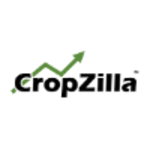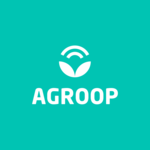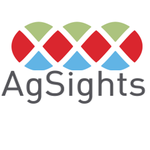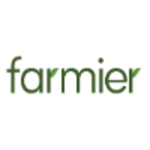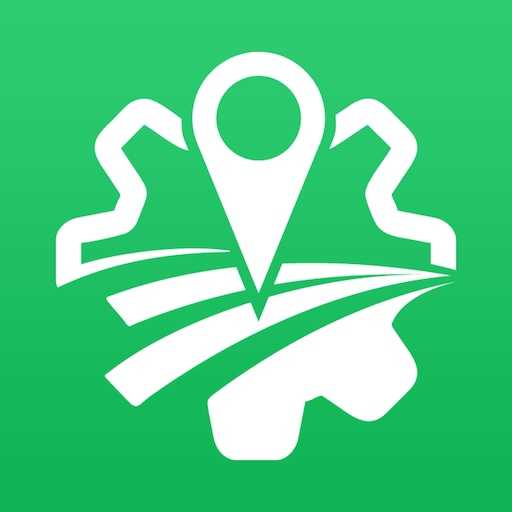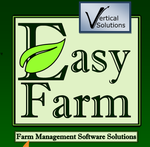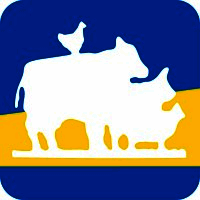What Is Farm Management Software?
A complete technological solution created especially for contemporary farmers and agribusinesses is farm management software. Crop planning, inventory control, financial record-keeping, and equipment maintenance are just a few of the many operations that it automates and streamlines. With the help of this effective technology, farmers can boost productivity, make data-driven decisions, and eventually enhance profitability.
The capacity of farm management software to gather and arrange data from various sources, such as weather forecasts, soil sensors, and equipment sensors, is one of its primary characteristics. Farmers are then able to make well-informed decisions on planting, harvesting, and other important operations after this data has been processed and presented in an understandable manner.
Farmers may also more effectively manage their equipment and inventories with the use of this software. It creates purchase orders, monitors inventory levels, and forecasts when supplies need to be refilled. Additionally, it keeps track of maintenance plans and equipment usage, which minimizes downtime and guarantees that every piece of equipment is operating at peak efficiency. The financial management features of farm management software are yet another crucial feature.
It gives farmers a clear and accurate picture of the financial health of their farm by enabling them to manage spending, keep an eye on cash flow, and create financial reports. For farmers who must oversee several crops and expenses at once, this tool is extremely helpful. Advanced functions like yield mapping, crop health monitoring, and satellite images are frequently included in farm management software in addition to these essential features.
These instruments give farmers even more insightful information and assist them in identifying potential hazards and areas for improvement. To sum up, farm management software is an essential tool for contemporary farmers trying to streamline their processes and boost revenue.
This software can assist farmers in making well-informed decisions, increasing productivity, and eventually managing a profitable and sustainable farm by automating processes, gathering and evaluating data, and offering insightful information. With so many options on the market, it's critical for consumers to thoroughly consider their requirements and select the software that best suits their particular agricultural operation.
What Are The Recent Trends In Farm Management Software?
Significant technology improvements have occurred in the agriculture sector in recent years, and farm management software use has grown in popularity. Farmers are searching for methods to improve crop yields, cut expenses, and streamline their operations in response to the increased need for efficient and sustainable agricultural methods.
In response to the evolving demands of farmers, the market for farm management software has witnessed a boom in invention and growth. The combination of predictive modeling and data analytics is one of the most notable recent developments in farm management software. This enables farmers to use real-time data gathered from their farms to inform data-driven decisions.
Farmers can forecast crop yields, spot patterns, and allocate resources as efficiently as possible by examining this data. The usage of mobile applications in farm management software is another development. Mobile apps give farmers the ease of managing their farms while on the road, which is made possible by the growing popularity of smartphones and tablets.
From the palm of their hands, farmers can use these apps to keep an eye on their crops, watch the weather, and get tips and notifications. Other new developments in farm management software include machine learning (ML) and artificial intelligence (AI). Farmers may use AI and ML to automate a variety of functions, including irrigation, soil analysis, and pest control. In addition to saving farmers time, this lowers the possibility of human error and improves crop quality.
Due to its affordability and ease of use, cloud-based farm management software is becoming more and more popular among farmers. Farmers may access their data, reports, and analytics from any internet-connected device by using cloud-based software. Farmers may work together more easily with their teams, suppliers, and customers as a result, which improves the efficiency of the farm management process as a whole.
Finally, as farm management software is developed, sustainability is becoming more and more important. Farmers are searching for software that will assist them in tracking and lowering their carbon footprint as a result of increased awareness of the effects farming operations have on the environment. This covers functions including waste management, pollution monitoring, and sustainable farming methods.
Benefits Of Using Farm Management Software
A strong tool for streamlining and improving all facets of managing a farm operation is farm management software. This software's sophisticated features and usefulness have made it a vital tool for contemporary farmers, giving them the means to manage their farms more successfully and efficiently. The main advantages of utilizing farm management software will be revealed in this buyer's guide, assisting you in selecting the best program for your farm.
1. Centralized Data Management: Farmers can store and arrange all of their farm-related data in one place by using farm management software. Crop, livestock, equipment, financial, and other details are included. Farmers can save time and effort by accessing current and accurate information with a few clicks thanks to a centralized database.
2. Better Planning And Decision-Making: Farm management software may help you make well-informed decisions and create successful farm strategies by providing you with real-time data at your fingertips. Farmers are able to foresee future trends, evaluate historical performance, and make appropriate plans. Better resource management, more output, and bigger profits are the results of this.
3. Increased Productivity And Efficiency: The increased productivity and efficiency that farm management software offers the farm operation is one of the major advantages of utilizing it. Automating manual processes like data analysis, report creation, and record-keeping gives farmers more time to devote to other important duties. Higher productivity and lower labor expenses result from this.
4. Accurate Inventory Management: Farmers can monitor the quantities of pesticides, seeds, and fertilizer by using farm management software. Farmers may minimize waste and save money by avoiding overstocking or understocking with precise inventory data. It also enables farmers to monitor how these resources are being used, guaranteeing prompt resupply before they run out.
5. Improved Traceability And Compliance: Farmers must now keep correct records and provide traceability due to the agriculture industry's growing restrictions. From seed to sale, farm management software assists farmers in monitoring all facets of their operations while guaranteeing legal and regulatory compliance.
6. Better Communication: Farm managers, employees, and other stakeholders may communicate more easily thanks to farm management software. It makes information sharing quicker and easier by doing away with the need for paper records. This improves cooperation and coordination on the farm, which produces better results.
7. Remote Access And Mobile Capabilities: Remote access and mobile capabilities are extra features of contemporary farm management software. This implies that farmers can use their cellphones or tablets to handle duties and access crucial farm data while they are on the go. Farmers can always stay in touch with their farms thanks to its flexibility and convenience.
Important Factors To Consider While Purchasing Farm Management Software?
Purchasing dependable farm management software can have a significant impact on how well and efficiently you run your farm. These software tools can improve your overall efficiency and optimize your operations with features like financial management, inventory tracking, and crop planning. However, selecting the best solution might be difficult due to the abundance of options available on the market.
The following crucial elements should be taken into account when buying farm management software in order to assist you in making an informed choice:
1. Specific Needs And Goals: It's critical to determine the needs and goals unique to your farm before beginning the selection process. The software you select should be in line with the particular needs of each farm. For example, you would require software with strong animal management functions if your farm specializes in cattle.
2. User-Friendly Interface: The software's interface should be simple to use and intuitive. You don't want to spend hours as a farmer attempting to understand how to use the software. The software will be more convenient to use and save you time if it has an intuitive interface.
3. Compatibility And Integration: Weather forecasting tools and accounting software are two examples of programs that farm management software may integrate with. Make sure the program works with the systems you already have and see if it integrates with other necessary farm equipment before making your purchase.
4. Accuracy And Security Of Data: Data is vital to any farm, so it's critical to make sure the software you select offers correct data and maintains its security. To protect the privacy and accuracy of the data on your farm, look for software that has features like encryption, permission-based access, and data backup.
5. Mobile Accessibility: Farmers now need to have mobile accessibility due to the growing popularity of cellphones. To access your farm's data and operations while on the go, pick software that provides a web-based platform or a mobile app. For making decisions quickly and keeping an eye on the farm's operations from a distance, this function can be useful.
6. Training And Assistance: It's critical to make sure the vendor provides training and customer assistance because farm management software might be complicated. A trustworthy software provider will give you materials to help you become familiar with the program and will help you with any technical problems you may have.
7. Cost And Value: Farm management software is available at a variety of pricing points, and it is important to take into account how much it is worth. To select the most affordable software that satisfies your farm's needs, look for features you need and compare pricing across several programs. You may choose the best farm management software for your farm by taking these aspects into account. Reliable software will help you make data-driven decisions, streamline your operations, and ultimately increase your farm's overall success.
What Are The Key Features To Look For In Farm Management Software?
It's crucial to search for essential elements that can improve the efficiency and organization of managing your farm operations when thinking about investing in farm management software. The following are some crucial considerations when choosing an appropriate piece of software:
1. Farm Mapping And Planning Tools: To assist you in designing and allocating your fields, crops, and resources, a quality farm management software should have mapping and planning capabilities. This will enable you to track field boundaries, arrange crop rotations, and make intricate maps of your farm.
2. Crop And Inventory Management: The program should be able to manage your crops, including forecasting yield, tracking the use of inputs (such seeds, fertilizer, and chemicals), and keeping an eye on crop growth. Additionally, it ought to have capabilities for controlling and monitoring stock levels.
3. Accounting And finance: Record-keeping and financial management are crucial components of farm management. Seek out software that lets you create financial reports, monitor payments and invoices, and measure costs, revenue, and profitability.
4. Management Of Equipment And Machinery: Your farm's machinery and equipment are important assets that require monitoring and upkeep. Select software that enables you to track usage, keep tabs on equipment efficiency, and manage repair schedules.
5. Weather Monitoring And Forecasting: Weather is important to farming and has a big influence on crop results. To assist you in making well-informed decisions regarding irrigation, planting, and harvesting, a decent farm management software should have weather tracking and forecasting features.
6. Mobile Accessibility: Having mobile access to your farm management software is crucial in the fast-paced world of today. Choose software that can be accessed via a web browser or has a mobile app so you can manage your farm while on the go.
7. Data Analysis And Integration: A complete farm management program should be able to combine data from several sources, including yield statistics, soil samples, and weather forecasts. To assist you in making data-driven decisions on your agricultural operations, it should also include analytical tools.
8. Task And Labor Management: Farming can be a difficult place to manage chores and labor. Task scheduling, labor assignment and monitoring, and labor cost tracking are all features of an effective farm management program.
9. Customer And Supplier Management: The software should include capabilities that make it easy for you to handle orders, payments, and communication if you interact with suppliers or engage in direct-to-consumer sales.
10. User-Friendly Interface And Customer Support: Finally, but just as importantly, make sure the farm management software you select has an easy-to-use interface and provides first-rate customer service in case you run into any problems or require help. Your experience with the software can be greatly impacted by a well-designed, intuitive user interface and dependable customer service. l
Why Do Businesses Need Farm Management Software?
Agriculture-related businesses are always changing and encountering new difficulties. Running a successful farm enterprise requires managing a variety of tasks, from labor and finances to crops and cattle. Farm management software is a useful tool for businesses in this situation. Simplifying and automating the many procedures involved in agricultural operations is the main goal of farm management software. This increases overall productivity and profitability in addition to saving time and effort.
These are some of the main advantages that a company can anticipate from purchasing farm management software.
1. Better Resource Management: Companies can track and manage all resources, including personnel, supplies, and equipment, in a single, centralized system with the help of farm management software. This aids in maximizing resource utilization, preventing waste, and cutting back on needless spending.
2. Improved Decision-Making: Any business must make well-informed decisions, but farming is particularly important because uncertainty is a constant. Businesses can make data-driven decisions for improved results by using farm management software to access real-time data and analytics.
3. Enhanced Productivity: Manual data entry and record-keeping on paper can be laborious and prone to mistakes. By automating these procedures, farm management software reduces errors and saves valuable time, increasing output and productivity.
4. Simplified Financial Management: Farm management software helps businesses remain on top of their money by offering tools like inventory management, budgeting, and spending tracking. Better financial management and planning are made possible by this, which raises profitability.
5. Compliance And Traceability: Consumers' concerns regarding food safety and traceability are growing in the current market. Farm management software allows companies to meet customer needs and adhere to rules by tracking and tracing the origin and travel of products.
6. Scalability: A farm business's operational requirements increase in tandem with its growth. Businesses may readily scale up by incorporating new features and functionalities to meet their changing demands using farm management software. All things considered, farm management software can revolutionize agricultural operations by decreasing manual labor, increasing productivity, and offering insightful data to help with decision-making. Businesses that invest in this technology can anticipate increased productivity, streamlined procedures, and eventually higher profitability.
How Much Time Is Required To Implement Farm Management Software?
The implementation time for farm management software can vary based on several factors, such as the complexity of the software, the size of the farm, and the level of customization required. On average, it can take anywhere from a few weeks to several months to fully implement farm management software. The first step in the implementation process is to assess your farm's unique needs and goals.
This will help determine the features and functionalities that are necessary for your farm operations. Depending on the software provider, this initial consultation may take a few days to weeks. Once the software is selected, the next step is data migration. This involves transferring all your farm data, such as crop history, inventory, and financial records, into the new software.
The time it takes for this process will depend on the amount of data and the compatibility of your previous systems. After data migration, the software will need to be configured to suit your farm's specific needs. This may involve setting up user permissions, creating custom reports, and integrating with other systems. Depending on the complexity of your farm operations, this step can take a few days to weeks.
The final stage of implementation is training for you and your team on how to use the software effectively. This can range from a few days to a few weeks, depending on the software's learning curve and the number of users.
What Is The Level Of Customization Available In Farm Management Software?
A complete tool, farm management software helps farmers increase overall efficiency and streamline their operations. The degree of flexibility offered by this program is one of its primary characteristics, enabling farmers to modify it to suit their own requirements and tastes. Fundamentally, farm management software provides a vast array of tools and modules that address many facets of farm administration, including field mapping, accounting, inventory control, and crop planning.
Every farm is distinct, though, and may have various needs and procedures. Here's when personalization becomes important. Each vendor offers a different degree of customization for farm management software. To satisfy the wide range of demands of their clients, the majority of trustworthy software programs, however, provide a significant degree of customisation.
This enables farmers to customize the software according to their own management techniques, crop types, and farm size. The ability to design unique templates and forms is one of the primary customization choices offered by farm management software. These can be used to record information specific to a farm, like crop yield reports, equipment maintenance records, or soil test findings.
Farmers no longer have to manually enter data, and the possibility of mistakes is eliminated. Additionally, the ability to personalize dashboards and reports is another feature that farm management software provides. This makes it possible for farmers to access and evaluate data however they see fit. For instance, a farmer may have different preferences for viewing financial information by crop or by month.
Furthermore, integration with other third-party tools and software is possible with certain farm management software packages. Because farmers can incorporate their favorite tools for weather forecasting, market analysis, or pest control into the software, the customization options are further increased.
Which Industries Can Benefit The Most From Farm Management Software?
A significant tool that can help a variety of farming and agriculture-related enterprises is farm management software. This program can completely change how you run your company, regardless of whether you are a major farm organization, a small-scale farmer, or a supplier of farming equipment.
1. Crop Production Industry: Farm management software has a lot to offer the crop production sector. With capabilities like crop planning, fertilizer scheduling, and yield tracking, it enables farmers to monitor and control their crops from planting to harvest. In addition to boosting output and efficiency, this aids in data-driven decision-making for improved crop management.
2. Livestock Industry: Features for maintaining animal records, breeding schedules, health records, and feed management are available to livestock farmers through Farm Management Software. Additionally, it provides tools for tracking animal performance and productivity, which can assist farmers in enhancing the general well-being and output of their herds.
3. Agricultural Supply Chain: Suppliers of seed, fertilizer, and equipment are among the parties involved in the agricultural supply chain that can benefit greatly from the adoption of farm management software. They may better manage their operations and satisfy client expectations by using it to keep track of their inventory, orders, and deliveries.
4. Farm Equipment Maintenance: Suppliers of farm equipment and maintenance firms may find Farm Management Software to be a useful tool with features for monitoring equipment usage and upkeep. It assists them in extending the life of farm equipment, reducing downtime, and monitoring routine maintenance regimens.
5. Agricultural Consulting Services: By using Farm Management Software, agricultural consultants can offer their clients insightful analysis and helpful suggestions. It enables them to evaluate agricultural data and offer tailored solutions to enhance farm productivity and boost profitability. To sum up, farm management software is a flexible instrument that can help a variety of farming and agriculture-related enterprises.
Conclusion
Using farm management software has become crucial in today's modern farming business in order to optimize overall operations, boost productivity, and enhance efficiency. To assist you in making an informed choice when purchasing farm management software, we have put together an extensive buyer's guide following extensive investigation and assessment. Priority one should be given to determining the unique requirements and objectives of your farm.
This will assist you in identifying the features and capabilities that are most crucial to your business's operations. The size of your farm, the number of workers, and the kinds of crops and livestock you have should also be taken into account when selecting the best software. Consider user-friendliness and ease of implementation while comparing various farm management software programs.
Selecting software that is user-friendly and intuitive is crucial since a complex and technical system can cause annoyance and reduce productivity. Compatibility of the program with other devices and systems you may already have is another crucial factor to take into account. A more efficient process might result from seamless integration, which can also save time and minimize errors.
Another important consideration while choosing farm management software is security. Make sure the software you select has sufficient security features in place, such data encryption and frequent backups, because your data and sensitive information must be secured. For many farm owners, the software's price is another important factor. Although choosing a less expensive alternative could be alluring, it's important to balance the price with the features and advantages provided. A greater return on investment over time can be guaranteed by selecting software that fits your farm's unique requirements and is reasonably priced.
Finally, to have a better knowledge of the software's functionality, read reviews and request demos or free trials. Additionally, you will be able to test out its features and see if it is a good fit for your farm. To sum up, your farm can gain a lot from investing in farm management software since it will streamline operations, boost productivity, and eventually increase revenues.
You may choose the best software for your farm with confidence if you take into account the aspects outlined in our buyer's guide. When choosing, don't forget to take into account the unique requirements and objectives of your farm, compatibility, cost, convenience of use, and security. We hope that this advice has been useful to you as you look for the best farm management software to ensure the success of your farm.



